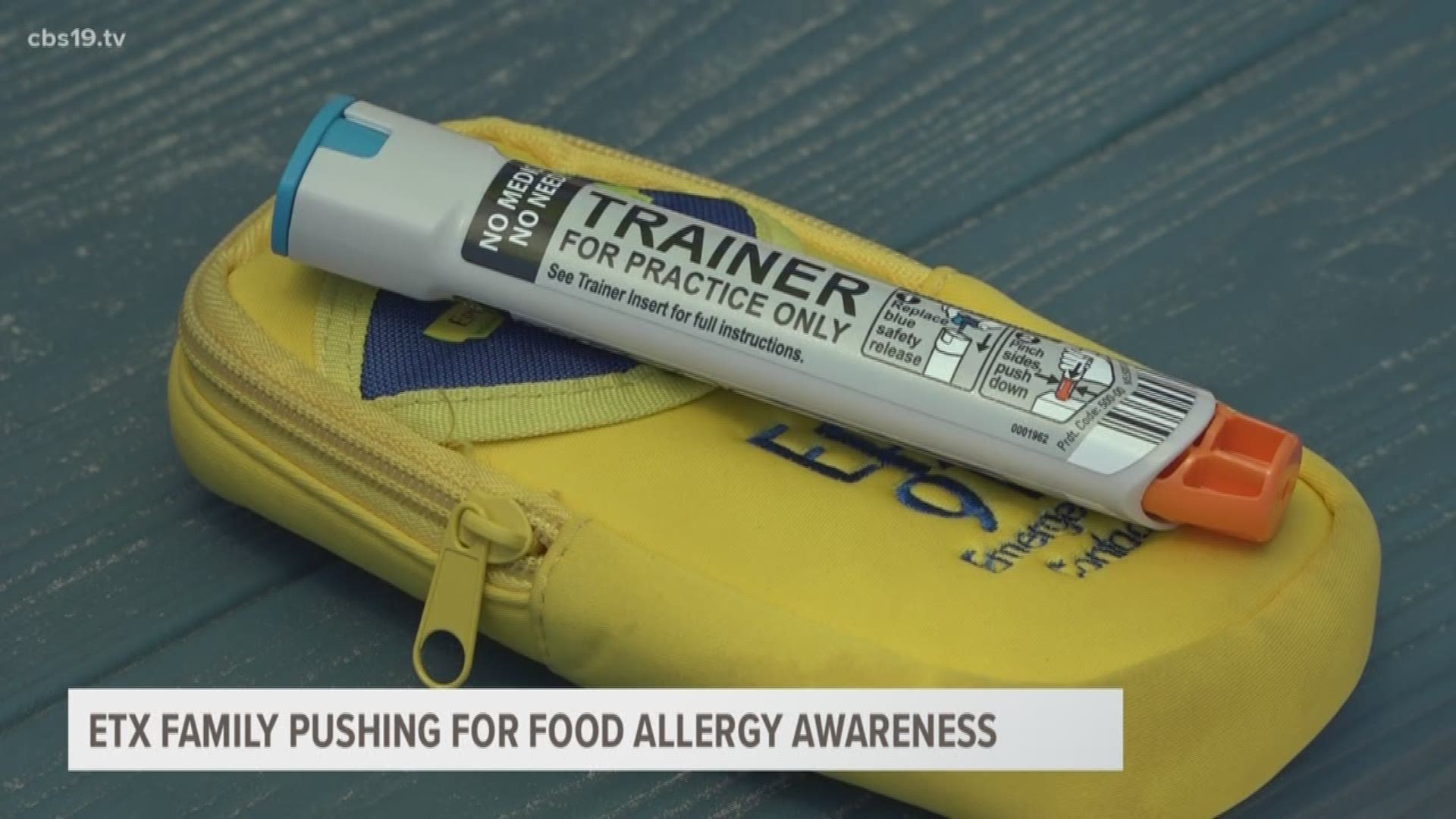PALESTINE, Texas — More than 170 foods have been reported to cause allergic reactions.
According to the nonprofit Food Allergy Research & Education (FARE), there are eight major allergens responsible for most of the serious food allergy incidents in the United States.
"May is Asthma and Allergy Awareness Month, and May 12 through May 17 is Food Allergy Awareness Week," says Dee Wilson."And so we just thought it would be a good reminder to those that are aware of food allergies or for those who have never heard about it."
Dee and her husband Dustin, are the parents of two young children: Jackie, 4, and Tom, 3.
"Our kids are overall just normal kids playing around, but if they have a peanut, they could die," says Dustin.
You can't tell just by looking at Jackie and Tom, but they are two of the 5.6 million children under age 18 nationwide with at least one food allergy.
"Jackie has a shrimp and peanut allergy, and Tom has a peanut allergy," says Dee. "Nobody else in our family has any food allergies. We were so surprised and shocked by it."
Dee says she and her husband discovered Tom was allergic to peanuts when he was about 1-year-old. Later, they'd realized Jackie also had allergies. Their first step was educating themselves as much as possible about food allergies and possible reactions.
"We try to educate the people around them, but we also try to educate them," says Dustin. "Even though they're young, we want them to know you are not always going to have certain foods. It's not a big deal. We'll find something else that you can have."
The eight major food allergens include:
- Milk
- Eggs
- Peanuts
- Tree nuts
- Wheat
- Soy
- Fish
- Crustacean shellfish
According to FARE, more than 40% of children with food allergies have experienced a severe allergic reaction such as anaphylaxis. Each year, roughly 200,000 people receive emergency medical care for allergic reactions to food.
"Ingredients change, manufacturers change, so it's important to read every label every time, including in other things that aren't just food products," says Dee. "Potting soil, toothpaste, anything can have a nut or shrimp or any of the top eight allergens in the ingredients."
In addition to raising awareness, Dee and Dustin want to see change in Texas, as they've seen in other states. On April 16, the University of Maryland added EpiPens to all its campus cafeterias due to the rise in food allergies.
"We’re hoping that can trickle down to high schools, middle schools, elementary schools," says Dustin. "Just like defibrillators, there should be EpiPens available too, and I know that they're expensive, but they're lifesaving, so why not have them at every school?"
Until that happens, the Wilson family says they'll continue to do their part in ensuring others care about protecting those with food allergies as much as they do.
"Food allergies are real.," says Dee. "They're deathly. We've had several food allergy deaths in our community, and it's scary."

